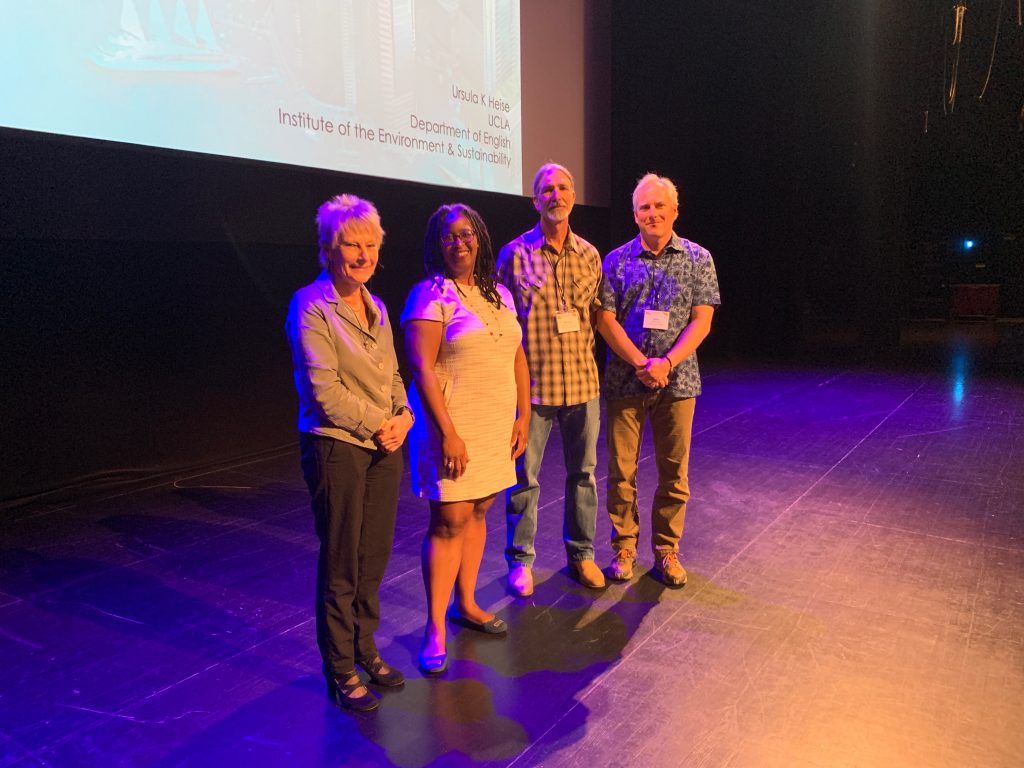“Dungy’s poetry often incorporates themes concerning the natural world, giving an urgency to the hope imbued in her poems.”
Find the list here.

“Dungy’s poetry often incorporates themes concerning the natural world, giving an urgency to the hope imbued in her poems.”
Find the list here.
“The poems below, however, are not all heartbreak poems although Camille Dungy’s poem, written in the voice of a former freeman now slave, is a beautifully sad reminder that Valentine’s Day is almost smack in the middle of Black History month.”
Read the poem here.
“As we begin this critical new year in the fight against climate change, Greenpeace is giving over space on our channels to authors and artists working within the climate crisis. Acclaimed author Lauren Groff prompted artists and thinkers to write essays and art about climate change for us, and so every day this month we’ll have a new piece from that project that addresses, in some form, what it means to create in the midst of this crisis. The forces fueling climate change have the most powerful networks in history pumping out their devastating propaganda at unimaginable scale. It’s going to take everything we have from all of us – imagination equal to the task – to create the climate we’ll need to stop the crisis.
[…]
We need these voices and these visions, but they won’t be enough. We need you, too. We encourage you to check back on the Climate Visionaries Artists’ Project every day to see what’s new, and to join the conversation by sharing your work on Twitter, Facebook, and Instagram and tagging it #ClimateVisionaries.”
Read more here.
“We asked 16 writers to bring consequential moments in African-American history to life. Here are their poems and stories.“
“rock the other mother’s babies down
slowly slowly slowly—maybe for four—yes
—for four hundred years —slowly slowly
—slowly rock the gone now babies down—
you know how a boat rocks on a calm”
“An eloquent exploration of the intersection between motherhood and racial identity, Dungy’s collection of essays illuminates the experience of being a black woman raising a young daughter. As the poet-author travels the world, touching down in a range of locations including Virginia, California, and Ghana, she digs into the history of American racism and offers maternally-informed guidance for negotiating its legacy.” Check out the list here!
“Rejecting the refrain ‘there are no words,’ Camille T. Dungy reaches for a language to encompass the experience of loss, extinction, and loneliness.”
Read more here.
On Friday, June 29, in recognition of her work in the field, Camille Dungy was inducted as an Honorary Member of the Association for the Study of Literature and the Environment (ASLE). This honor was bestowed during the organization’s biennial conference, held this year at UC Davis in California. Fellow 2019 honorees include Michael Branch, Mark Long and Ursula Heine. Camille Dungy was introduced by Elizabeth Dodd. (Branch, Long and Heine were introduced respectively by Lauren LaFauci, Erin James, and Heather Sullivan.)

“Those of us familiar with Alabama’s history aren’t particularly surprised to read about a law that will disproportionately and negatively affect women of color and women without the financial means to take themselves and their bodies away from that state. You know, I want to tell people who don’t know about this long and ugly history, you should read books on the subject published recently by Bettina Judd, Kwoya Fagin Maples, and Dominique Christina.”
This year marks the 200th anniversary of Walt Whitman’s birth. The #everyatom project has invited 200 people to reflect on Whitman’s 1855 Leaves of Grass. My reflection—the 7th installment—is up today!